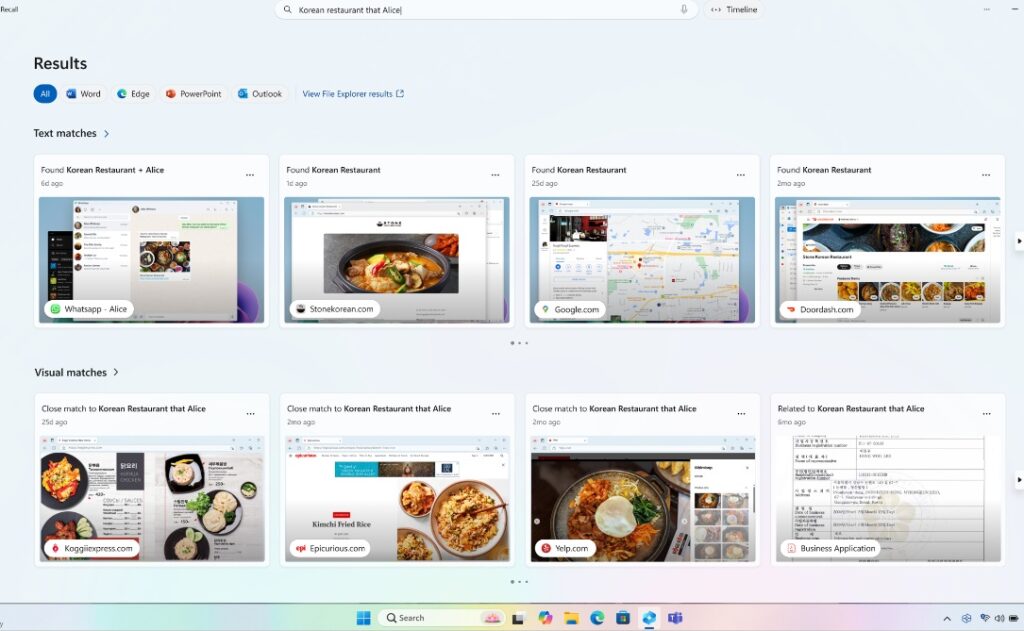In a story reported recently on the BBC, it was recently announced that the UK Information Commissioner’s Office (ICO) is “making enquiries with Microsoft” over a new feature that can take screenshots of a user’s laptop every few seconds. Microsoft says Recall, which will store encrypted snapshots locally on your computer, is exclusive to its forthcoming Copilot+ PCs. COO and Co-Founder of Acumen, Kevin Robertson, responds.
It is, according to Microsoft, an “optional experience”, but ICO has concerns and says it is contacting Microsoft for more information on the safety of the product, which privacy campaigners have called a potential “privacy nightmare”.
On its website, the ICO offered this from a spokesperson “We expect organisations to be transparent with users about how their data is being used and only process personal data to the extent that it is necessary to achieve a specific purpose. Industry must consider data protection from the outset and rigorously assess and mitigate risks to peoples’ rights and freedoms before bringing products to market.
“We are making enquiries with Microsoft to understand the safeguards in place to protect user privacy.”
In response to the news, Kevin Robertson, COO and co-founder of Acumen, comments: “This is basically spyware. It’s good to see the ICO carrying out this investigation, but it’s unlikely to make any real difference. Microsoft is too big and too powerful to be brought down. They’ll just say its optional and it’ll get implemented anyway. Most users will turn it on without realising the impact or it will be on by default.
“How on earth can Microsoft even think about calling itself a security company with features like Recall? This is going to get abused on so many levels.
“Imagine your PC taking screenshots of you putting in passwords, bank details etc, all just stored on your PC. If your PC is compromised, or if that info is shared into Copilot etc., it’s just liable to abuse.
“This will be the next Microsoft ‘feature’ to hit the news when it’s exploited in a major way.”
For more cybersecurity news, click here




